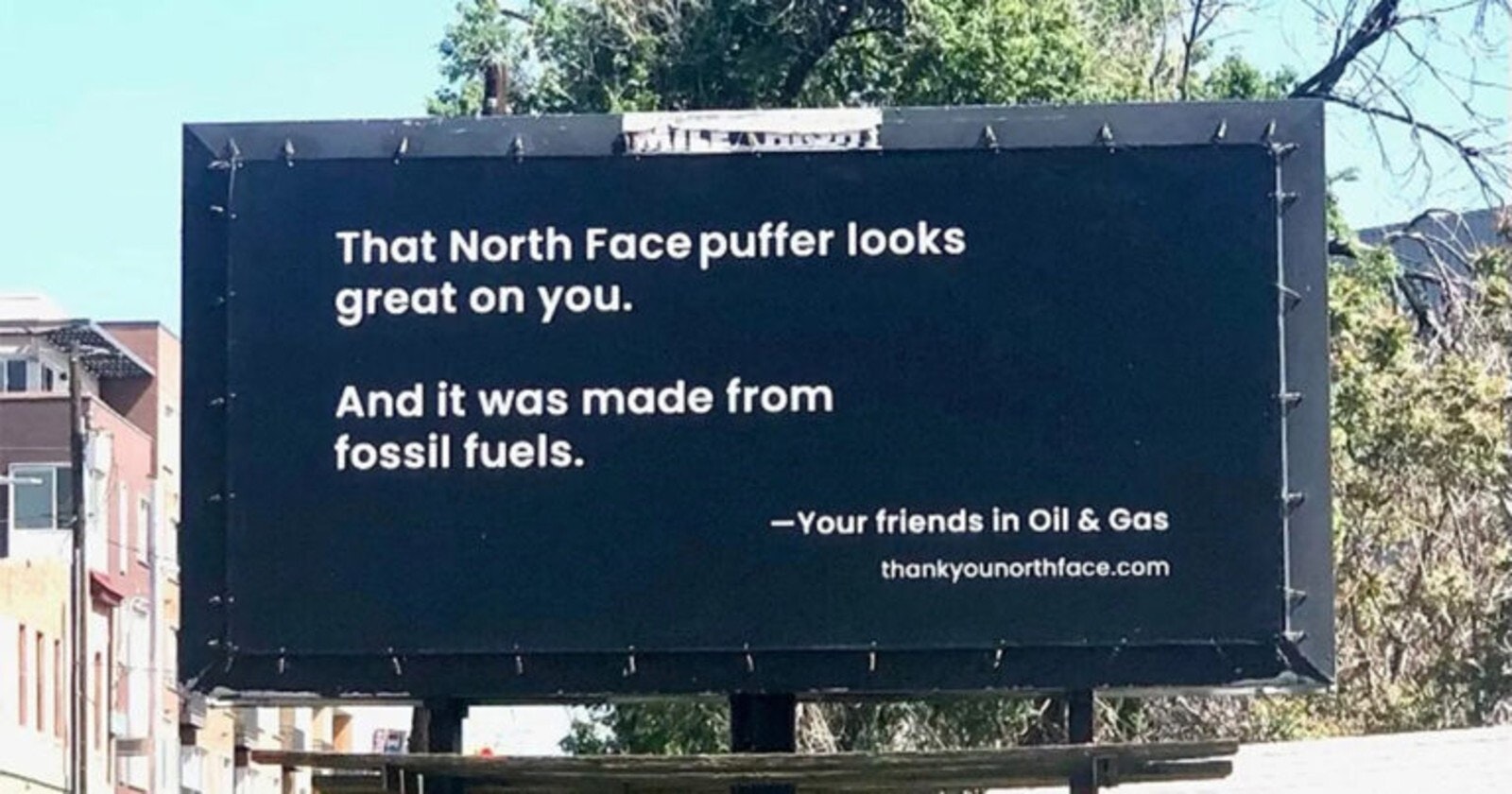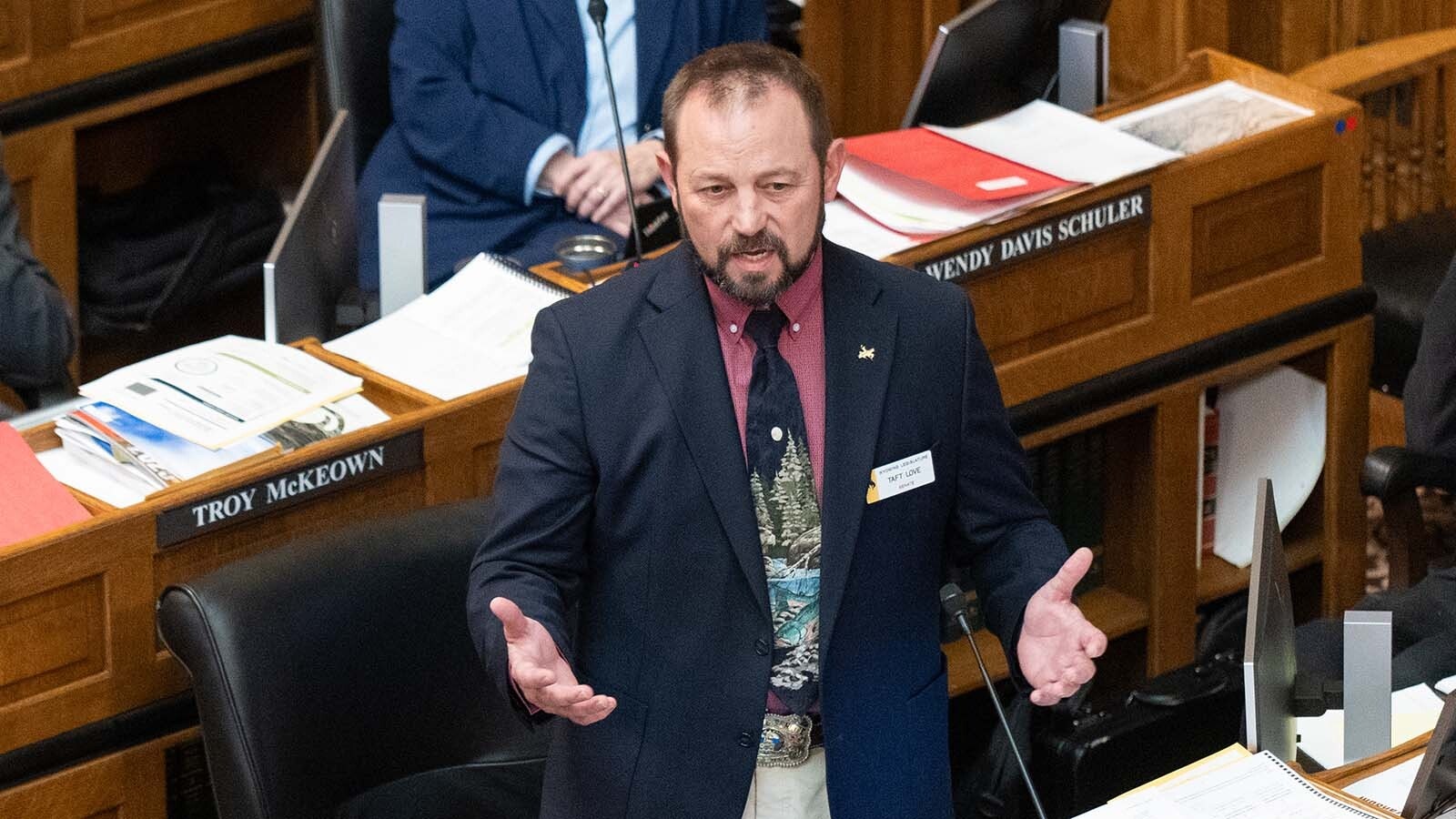News about oil and gas, especially in the national press, tends to be negative. Oil companies are often vilified in the media that oil executives won’t talk to reporters at all, much less respond to accusations their industry is doing more harm than good.
Chris Wright, CEO of Liberty Energy Inc., offers no apologies for the company, with operations in Wyoming, being an oil and gas producer. He welcomes opportunities to discuss what Liberty does and the value hydrocarbons bring to Liberty’s customers and the world.
‘Ridiculously Hypocritical’
In the summer of 2021, Innovex Downhole Solutions Inc., a competitor of Liberty, wanted to give its employees co-branded apparel from The North Face for Christmas. North Face refused because it didn’t want its brand associated with petroleum companies.
Wright found it peculiar that North Face, a company with very few products that aren’t derived from oil and gas, wouldn’t want to be associated with companies that produce it.
“It’s so ridiculously hypocritical,” Wright told Cowboy State Daily. “I spent 15 years speaking on energy and climate change. I love this discussion and debate, and I think the public in general is just ignorant on it.”
After North Face turned its back on Innovex, Liberty launched a campaign to thank North Face for being such a great customer of the oil and gas industry, which included YouTube videos that went viral and billboards in downtown Denver.
Wright said it took two months to find a billboard company willing to sell him space for the ads.
North Face Goals
Wright, himself an outdoor enthusiast, said he’s never really had any kind of dialogue with North Face since the campaign. The outdoor apparel company released a statement in response to the controversy, explaining that it would harm their brand to be associated with oil and gas companies. It then boasted of a commitment to make all their apparel recyclable by 2030.
Cowboy State Daily reached out to North Face to ask if the company was reaching those goals and if it had any reconsiderations about refusing to associate with the oil and gas companies, but did not get a response before this report was posted.
Wright said the company’s response was more hypocrisy. He pointed out that recycling of synthetic materials is an energy-intensive process that requires fossil fuel energy.
“They’re taking old oil and gas and using new oil and gas to reform the old oil and gas into an updated form,” Wright said.
A Buck Fifty
Wright freely admits there are negative impacts of oil and gas, but said he discusses them in a context that also considers their benefits.
“We create a dollar’s worth of benefits and then maybe a nickel or dime of negative impacts,” Wright explained. “Sure, I’d love to shrink that nickel. … But if I can take the dollar’s-worth benefit and make that $1.50, that’s 50 cents of benefit. That’s a way bigger target.”
That’s a huge departure from how most petroleum companies communicate about their products. Companies across many industries put out Environment, Social and Governance (ESG) reports.
ESG is a movement that rates companies on their commitment to progressive causes such as fighting climate change, employee diversity and community relations.
The movement downgrades any company associated with oil and gas because of their impacts on climate change, and that discourages investments in the industry. In their ESG report, companies such as Shell and BP regularly tout a firm commitment to net-zero targets and eventually becoming something other than oil and gas companies.
“I’m frustrated with our own industry that writes these kinds of ‘we apologize we’re in the oil and gas industry’ ESG reports,” Wright said.
Bettering Human Lives
Liberty Energy’s ESG report is titled “Bettering Human Lives.” In the introduction to this year’s report — it’s the second year the company has produced one — Wright sets a tone in which Liberty’s overall impact is discussed.
“It is simply not possible to discuss the environmental and social impacts of our industry without considering the environmental and human impacts of the absence of our industry,” Wright’s introduction in the report states, emphasis in the original.
The report contains no discussion of The Paris Agreement, the international treaty on emission reduction targets, and the phrase “net-zero” doesn’t appear anywhere in the report. Instead, it discusses the rise of oil and gas after World War II, which it calls the “Great Enrichment.”
“The decades after WWII saw billions of humans lifted out of poverty. This revolution is still far from done, but has boosted living standards like never before,” the report states.
“Bettering Human Lives” contains a lot of the information about the petroleum industry, which Wright said people generally don’t know.
For example, citing data by the Energy Information Administration, the report shows that we’re not only using more total fossil fuels than ever, it will continue to be the dominant energy source for the future. The energy mix will change, but the data doesn’t show that there’s a future without fossil fuels.
The ESG report discusses how hydraulic fracturing gave rise to the shale revolutions, which released an abundance of natural gas. Greenhouse gas emissions on a per capita basis are at their lowest level in over 50 years, the report notes, and over half that decline is attributable to the switch from coal to natural gas.
Fossil fuels are often said to be killing people as a result of air pollution. The report shows that undeveloped countries rely on wood and dung for their cooking and heating energy, which results in about 3 million deaths worldwide, according to figures from the World Health Organization. If they had access to fossil fuels, it would save more lives.
The report contains an aerial photo of the border between Haiti and the Dominican Republic. Haiti primarily uses wood for energy, and the Dominican Republic, which has a per capita energy consumption eight times than Haiti, derives almost all its energy from fossil fuels. On the Dominican Republic side of the photo is dense jungle and on the Haiti side are deforested hills.
Fighting Energy Poverty
The report discusses the relationship between energy scarcity and poverty. Nations with low electricity consumption have the highest rates of hunger. Three billion people today use less electricity per year than the average American uses to power his refrigerator.
In a section on climate change, the report displays graphs of extreme weather trends. There is no global increase in hurricane landfalls between 1970 and 2021. There has been no increase in strong to violent tornadoes since 1950. U.S. flood damage as a percentage of GDP is down. There has been an uptick in the past 20 years in the annual acreage of forest burned in the U.S., but the amount of acres burned is about one-fifth the area burned annually in the first half of the 1900s. The number of global deaths from severe weather had declined about 98% since 1920.
The report also shows how much of the modern developed world is based on cement, steel, plastics, and fertilizers, all of which are either made from fossil fuels or require energy from fossil fuels to produce.
The report also talks about the company’s efforts to provide greater safety to its employees, create efficiencies in its activities, reduce its ecological impacts and use of chemicals in its fracking fluids, and its commitment to a diverse workforce.
‘Freaking Nuts’
Despite taking a position that many activists wouldn’t appreciate, Wright said the response to his communications haven’t been particularly hostile. He usually finds himself disappointed by how little he’s challenged.
“I want the people that demonize our industry and hate us to challenge me and get a little back and forth. But I get very little of that,” Wright said.
Wright said he gave an exclusive to a major national media outlet when Liberty released its first ESG report last year, and the journalist from the outlet asked Wright why he’d risk stirring up so much controversy.
“Why did you write this?” Wright said the stunned reporter asked him.
“Because it’s true,” he replied.
Wright said, as vocal as he is, he’s reaching a very small audience. He wishes more people in the industry would speak up. He said he receives a lot of praise by other industry leaders for championing their industry, but when he suggests they join him, most of them remain reluctant.
He said what’s really going to reach people is the impacts of energy poverty. As attacks on oil and gas continue and people feel the pain of high energy costs stemming from these misguided anti-petroleum policies, that’s probably when they’ll learn how little they know about the value of oil and gas.
“The real story is that they’re advocating something that would impoverish the world. That’s freaking nuts,” Wright said.





